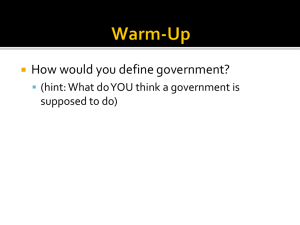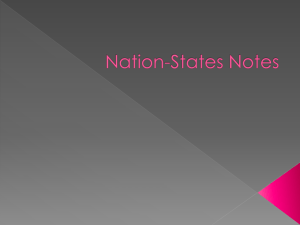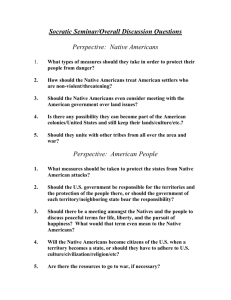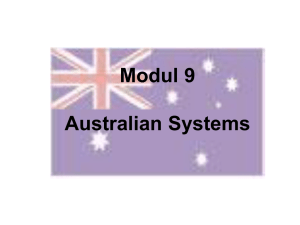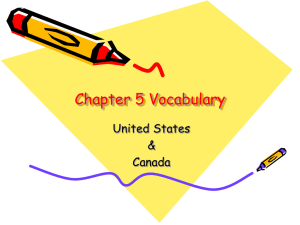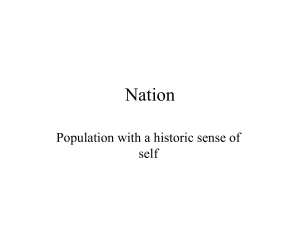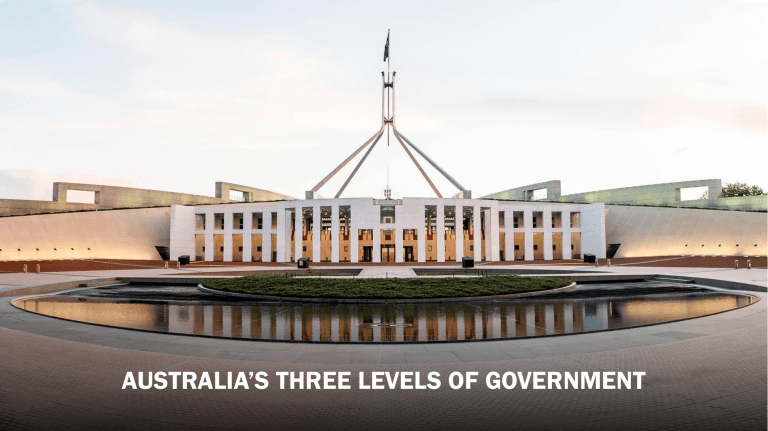
AUSTRALIA’S THREE LEVELS OF GOVERNMENT AUSTRALIA… Australia has three levels of government. Each of these levels of government work together to provide us – Australian citizens – with the services we need. The three levels are: • Federal Parliament in Canberra – Australian or national • State and Territory parliaments – in each state and territory capital city • Local councils, also called shires or municipalities – across Australia RESPONSIBILITIES Representatives – those we refer to as politicians – are elected to the Federal Parliament, state and territory parliaments, and local councils. They are elected to all levels of government so that Australians have someone to represent them at each level. Parliaments and councils make laws; governments put these laws into action. RESPONSIBILITIES Each level of government provides different services to Australians. Sometimes these services overlap. FEDERAL GOVERNMENT STATE AND TERRITORY GOVERNMENTS Responsible for issues that affect all Australians (national issues) Responsible for issues that affect people in that state or territory • Post, telephone connections, internet connections • Money • Immigration • Defence • • • • • Public transport Schools Hospitals Public housing Transport infrastructure LOCAL COUNCILS Responsible for issues that affect local communities • Rubbish collection and recycling • Parks, sports fields and swimming pools • Pet control • Parking RESPONSIBILITIES In order to pay for and provide these services to Australians, all levels of governments raise money, through the collection of taxes. Local councils also receive funding from the federal and state governments. FEDERAL The federal government raises money to run the country by collecting taxes on incomes, goods and services, and company profits, and spends it on national matters. STATE AND TERRITORY LOCAL State and territory governments also raise money from taxes but receive more than half their money from the federal government and spend it on state/territory matters. Local councils collect taxes – rates – from all local property owners and receive grants from federal, state and territory governments, and spend this on local matters. THE AUSTRALIAN CONSTITUTION Section 51 of the Australian Constitution (a set of rules by which Australia is run) contains a long list of areas that outline where the federal Parliament can make laws. Some of these include defence, foreign affairs and immigration. Other areas – education, health, water management, etc. – are shared with the states. These are called concurrent powers. In the case where state and federal laws come to conflict on the same subject, the federal law overrides the state law.

